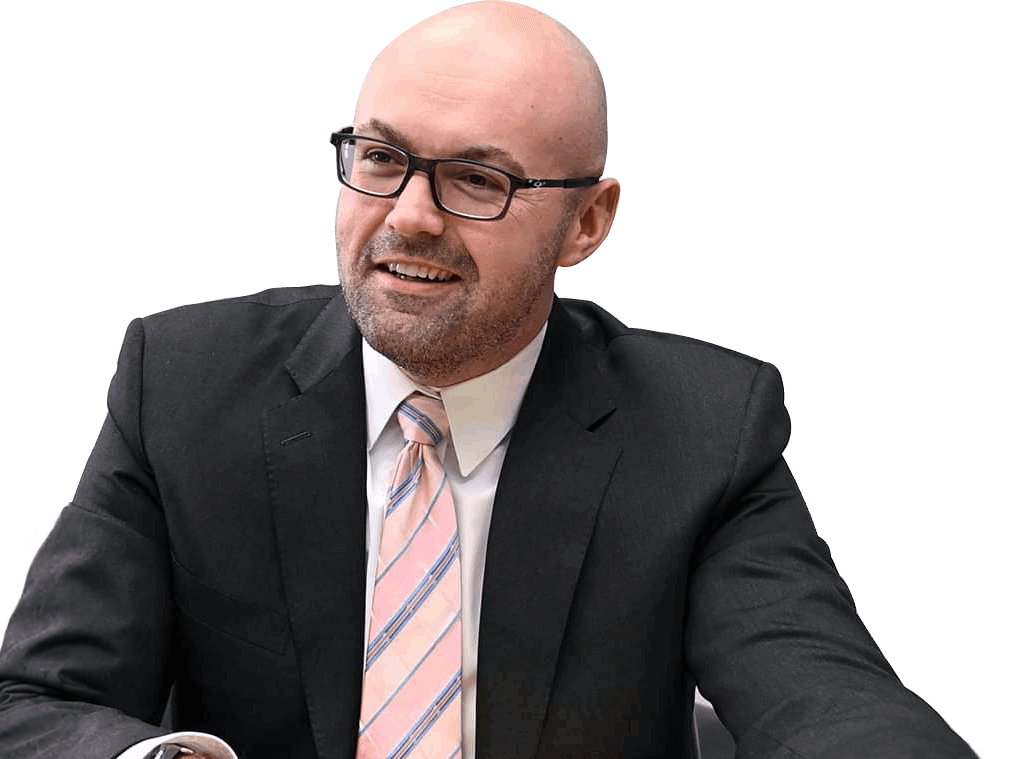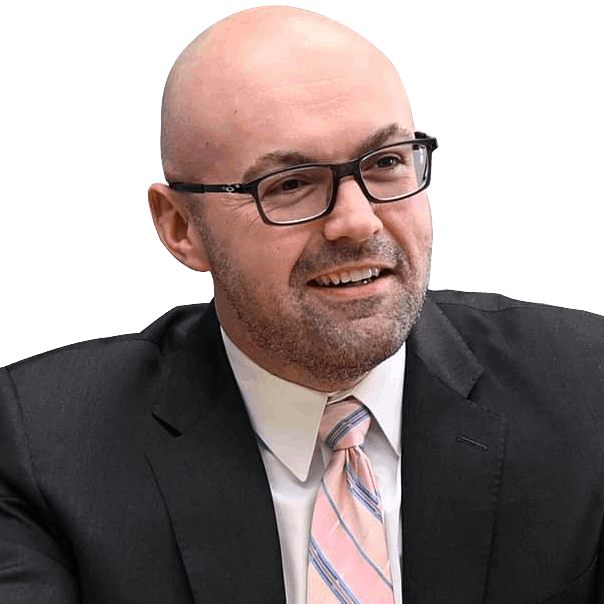A routine trip to Holy Cross Hospital near the Burnside neighborhood or an urgent transfer to Advocate Christ Medical Center can turn into a life-altering ordeal when mismanaged medication orders, overlooked diagnostic tests, or unsanitary patient environments derail your recovery. Whether you’re a steel-mill worker at U.S. Steel, a schoolteacher at Burnside Academy, or a retiree enjoying the Calumet Riverfront Trail, hospital mistakes can saddle you with crippling bills, lost wages, and lasting physical and emotional trauma. Chicago Injury Lawyer investigates these systemic breakdowns—chronic understaffing, EHR malfunctions, flawed transfer protocols—and fights to secure compensation for medical expenses, income losses, and the intangible suffering you’ve endured.
Call us now at 312-261-5656 for a free, no-obligation consultation, available 24/7. With our no-fee-unless-we-win policy, you can focus on your recovery while we handle the rest.
Why Hospital Negligence Happens in Burnside
Even well-resourced urban hospitals serving Burnside face unique pressures that can jeopardize patient safety:
- Night-Shift and Weekend Shortages: Critical areas like the ICU and emergency department often operate below safe nurse-to-patient ratios on nights and weekends, delaying time-sensitive lab draws, vital-sign checks, and medication administrations.
- Reliance on Travel Nursing Staff: Contracted nurses unfamiliar with Holy Cross’s internal protocols can misinterpret dosage instructions or fail to reconcile allergies, leading to dangerous medication errors such as IV overdoses or unflagged drug interactions.
- Fragmented Electronic Health Records: When imaging studies are conducted at off-site radiology centers, or labs are processed at centralized Advocate facilities, test results may not sync back promptly, causing critical diagnostics—like CT scans for stroke or cultures for sepsis—to go unread.
- High Patient Volume Surges: Burnside residents commuting via the nearby Metra or Cal-Sag Channel users flood local ERs during rush hours and community events, forcing rushed triage that overlooks subtle signs of life-threatening conditions.
- Aging Infrastructure in Historic Wings: Older hospital wings awaiting renovation can harbor bacterial reservoirs on hard-to-sterilize surfaces, fueling outbreaks of MRSA, C. difficile, or other hospital-acquired infections.
These operational failures breach the Illinois Hospital Licensing Act, Joint Commission accreditation standards, and facility-specific safety protocols, giving rise to valid malpractice claims under Illinois law.
Types of Hospital Negligence Cases We Handle
Our Burnside clients face a broad spectrum of institutional errors:
- Hospital-Acquired Infections (HAIs): Sepsis from contaminated central-line catheters or ventilators, C. difficile colitis from improperly sterilized equipment, and MRSA bloodstream infections acquired during inpatient stays.
- Medication & Charting Errors: Wrong-dose IV infusions, duplicate opioid orders, or failure to flag known allergies—commonly occurring during hectic ER hand-offs or understaffed night shifts.
- Diagnostic Delays & Misreads: Unread imaging revealing internal bleeding, overlooked CT scans showing early stroke changes, or lab abnormalities misfiled in the EHR—leading to delayed interventions for conditions like pulmonary embolism or meningitis.
- Surgical Errors: Wrong-site procedures, retained surgical sponges, and equipment malfunctions in busy OR suites—errors that may require corrective surgeries or cause permanent disability.
- Post-Anesthesia Falls: Sedated patients left without adequate fall-prevention measures suffer fractures, head trauma, and spinal injuries when unattended in recovery bays.
- Failure to Monitor & Escalate Care: ICU and telemetry patients missing timely vital-sign checks, leaving arrhythmias or hypertensive crises untreated until catastrophic decompensation occurs.
In every case, we demonstrate how a reasonably prudent hospital in the Chicago south side would have prevented the harm, drawing on local policy manuals, American Hospital Association benchmarks, and testimony from board-certified medical experts.
Life-Altering Injuries from Hospital Malpractice
Unchecked negligence can inflict catastrophic outcomes:
Sepsis & Septic Shock
A contaminated IV line or central catheter can introduce bacteria directly into the bloodstream. When lab cultures are delayed or misrouted due to EHR syncing failures, patients spiral into systemic infection, requiring multiple surgeries, extended ICU stays, and facing permanent organ damage or death.
Hypoxic Brain Injury
Errors in airway management—delayed intubation, misplaced endotracheal tubes, or anesthesia oversights—can deprive the brain of critical oxygen within minutes. Survivors endure lifelong cognitive deficits, speech impediments, and require extensive rehabilitative services.
Wrongful Amputations
Compartment syndrome—often misdiagnosed as routine post-operative swelling—destroys muscle and nerve tissue if not treated within hours. Overlooked pain complaints in the OR or ward can force emergency amputations that could have been prevented with timely fasciotomies.
Birth Injuries
Understaffed labor and delivery units, delayed recognition of fetal distress, and omitted monitoring alarms can cause cerebral palsy, Erb’s palsy, or hypoxic-ischemic encephalopathy. These lifelong disabilities demand decades of therapy, assistive devices, and specialized educational support.
Pulmonary Embolism
Neglecting post-surgical mobility protocols or failing to prescribe adequate anticoagulants enables deep-vein thrombi to form and journey to the lungs, triggering sudden respiratory collapse and requiring emergency intervention.
For families facing these traumas, our experienced surgeon negligence attorney team conducts exhaustive analyses—auditing OR logs, vendor maintenance records for surgical tools, and staffing rosters—to identify every responsible party, from hospital administrators to equipment manufacturers.
For a free legal consultation, call 312-261-5656Your Legal Rights Under Illinois Law
Illinois law generally provides two years from the date of discovery of your injury to file a medical-malpractice lawsuit, though exceptions apply for minors, wrongful-death claims, and concealed errors. Burnside-area claims are filed in the Cook County Circuit Court – Bridgeview Courthouse or, for transfers to Advocate Christ Medical Center, the Daley Center in downtown Chicago. Our comprehensive litigation strategy includes:
- Securing the Complete EHR: We obtain audit trails revealing any late chart edits, deletions, or unauthorized access aimed at concealing errors.
- Subpoenaing Staffing and Call Schedules: We document violations of state-mandated nurse-to-patient ratios and credentialing lapses during critical shifts.
- Engaging Board-Certified Experts: ER physicians, infection-control specialists, and veteran administrators familiar with south-side workflows testify on accepted standards of care.
- Filing a 735 ILCS 5/2-622 Affidavit of Merit: A qualified Illinois physician certifies that negligence likely occurred, satisfying statutory prerequisites before trial.
When diagnostic delays compound your harm, our dedicated diagnostic error attorney partners dissect imaging protocols, lab-notification pipelines, and differential-diagnosis procedures to prove how timely intervention would have preserved your health.
Immediate Steps to Protect Your Case and Your Health
Time is critical in preserving evidence and strengthening your claim:
- Request Certified Medical Records: Obtain inpatient and outpatient charts, nursing flowsheets, radiology and lab reports, medication-administration logs, and incident or sentinel-event reports. Under Illinois law, hospitals must comply within 30 days of a written request.
- File an IDPH Complaint: Submit a grievance through the Illinois Department of Public Health online portal to trigger an official investigation and establish a public record.
- Maintain a Detailed Journal: Log daily pain levels, treatment side effects, rehabilitation milestones, out-of-pocket expenses, and all communications with medical staff or insurers, recording dates and times.
- Photograph Injuries and Conditions: Capture high-resolution images of surgical scars, IV sites, unsanitary areas, or malfunctioning equipment to preserve visual proof.
- Consult an Attorney Before Speaking to Risk Management: Early statements or waivers requested by hospital teams can limit your rights and weaken your case.
Why Burnside Residents Trust Our Malpractice Team
• Institutional-Liability Expertise: Decades spent unraveling defense strategies in both community and major health-system cases.
• Resource-Intensive Investigations: Medical analysts, life-care planners, and digital-forensics specialists trace every chart alteration and communication breakdown.
• Local Insight: Deep understanding of Burnside’s demographics—from steel-mill shift workers to families in the Calumet Heights area—and how Cook County juries evaluate medical-negligence claims.
• Skilled Negotiators & Litigators: Proven track record securing substantial verdicts and confidential settlements reflecting true injury costs—ongoing therapy, future-care needs, and loss of earning capacity.
• Contingency-Fee Promise: No attorney fees unless we recover compensation, aligning our success with your recovery.
• Transparent Communication: Dedicated case managers provide weekly updates and direct access, ensuring you always know your case’s status and next steps.
EXCELLENTTrustindex verifies that the original source of the review is Google. I can't stress enough how grateful I am that we hired Paul Marriett to help us with our case. His communication was not only timely and thorough but also understandable. He did a phenomenal job guiding us through the process and preparing us for the courtroom, which put our minds at ease. Once our hearing came, he did his job flawlessly and won our case. Additionally, he was quite pleasant to speak with when our judge was behind schedule and while the court was in recess. I highly recommend him to anyone needing an attorney and will reach out again in the future should we ever need representation.Posted onTrustindex verifies that the original source of the review is Google. Very professional and helpful! I would recommend to all my friends and family to hire him. He was eager to know the circumstances of my case even before I hired him. I did contact other lawyers and offices, but none came close to the comfort I felt while talking to Mr. Marriertt, I really felt like he cared about the situation I found myself in. He deserves 6 stars for going above and beyondPosted onTrustindex verifies that the original source of the review is Google. Paul helped me out with a traffic citation. The communication was great as he walked me through my options and what to expect with my court date and plea deal. 10/10 service. Highly recommended. Thanks again, Paul.Posted onTrustindex verifies that the original source of the review is Google. Paul was very professional, sharp dressed and clearly a notch above most in the courtroom. He understood my plight and refused to be bullied. Knows the law to a T....I'm keeping him on speed dial. I think u will trust him too.Posted onTrustindex verifies that the original source of the review is Google. BEYOND satisfied with the services & representation! The communication & efforts have been above & BEYOND! Amazing price as well for a minor traffic hiccup. 11/10 recommend & prefer this firm for any future occurrences!!! Very transparent, & puts in the effort to help you!!!Posted onTrustindex verifies that the original source of the review is Google. If you are needing a lawyer in Rockford or the surrounding areas this is the guy you need to get ahold of! Do not waste your time or money going to someone else.... From the very start Mr. Marriett was on top of his job. I called several lawyers before him and he was the first to thoroughly explain everything I needed to hear without even asking him to. The definition of a great lawyer. Each time we went to court he always let me know ahead of time either in person or via phone what the expectations or options would be going in. I highly recommend Paul Marriett if you are in need of a lawyer!Posted onTrustindex verifies that the original source of the review is Google. Explained everything well. Kept us informed. I'm glad we found him.Posted onTrustindex verifies that the original source of the review is Google. I am very late on sharing my feedback only because I’m google illiterate. Attorney Merriett did a very smart excellent job for me and not real expensive considering how stupid I was to get in trouble . Thank you! For all your professionalism! Bruce P.Posted onTrustindex verifies that the original source of the review is Google. Great service and a reliable lawyer. I'm glad we got him instead of getting anyone else. :)
Get Directions to Our Law Office
Visit us in Chicago for a free consultation
- Address: 101 N Wacker Drive, Suite 100B, Chicago, IL 60606 Get Directions
- Driving Directions: If you’re traveling from The Loop, head north on Wacker Drive. Our office is between Lake and Randolph Streets, easily accessible from I-90 and I-94.
- Parking Options: Convenient parking is available at nearby garages, such as the Wacker & Monroe Garage, and there are metered spaces along N Wacker Drive.
- Landmarks Nearby: Our office is just steps from the Chicago Riverwalk and close to The Loop, making it a convenient location for visitors.
Contact Us
Chicago Injury Lawyers
101 N Wacker Drive, Suite 100B
Chicago, IL 60606
Phone: (312) 261-5656
Email: contact@chicagoinjurylawyer.com
Hours: 24/7

Frequently Asked Questions About Hospital Negligence in Burnside
How do I file a formal complaint against a Burnside-area hospital?
Submit your grievance online via the IDPH portal and follow each facility’s internal grievance process through its patient relations department. Retain certified mail receipts and copies of all correspondence to document management’s awareness of your concerns.
Where are malpractice lawsuits filed for Burnside incidents, and what can I expect?
Cases typically proceed in the Bridgeview Courthouse for Holy Cross matters or the Daley Center for Advocate Christ transfers. After filing, expect written discovery requests, depositions of medical staff, expert-witness disclosures, pre-trial conferences, and possible mediation. Many hospitals settle once expert reports expose systemic failures.
What medical records should I request from local hospitals?
Formally request your full EHR, including audit logs, nursing shift records, imaging studies, laboratory data, medication logs, operative reports, and any incident or sentinel-event reports. Illinois law requires compliance within 30 days of a written request.
Can a hospital’s accreditation status affect my negligence claim?
Yes. Facilities accredited by The Joint Commission or DNV must meet stringent safety benchmarks. Demonstrating deviations—such as elevated bloodstream-infection rates or missed safety-check protocols—strengthens your case by showing the hospital failed to uphold its advertised credentials.
Are expert witnesses readily available for a Burnside case?
Absolutely. We collaborate with board-certified ER physicians, infection-control specialists, and experienced hospital administrators who’ve overseen safety compliance in Chicago’s south-side facilities. Their firsthand knowledge carries significant weight before local juries.
What compensation range can I expect for hospital negligence in Burnside?
Settlements vary. Mid-six-figure awards often resolve complex infection or diagnostic-delay claims, while catastrophic brain injuries or birth-trauma cases can yield multimillion-dollar verdicts covering lifetime care, adaptive equipment, and loss of earning capacity.
What if my injuries appeared days or weeks after discharge?
Illinois measures your statute of limitations from the date of discovery—when you knew or reasonably should have known about the malpractice. If sepsis or another complication surfaced later, your two-year filing window begins at that discovery date, not the discharge date.



